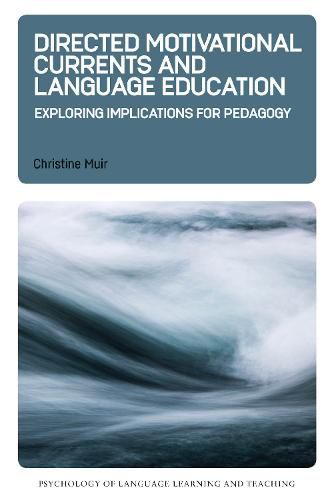Readings Newsletter
Become a Readings Member to make your shopping experience even easier.
Sign in or sign up for free!
You’re not far away from qualifying for FREE standard shipping within Australia
You’ve qualified for FREE standard shipping within Australia
The cart is loading…






Directed motivational currents (DMCs) are goal-directed motivational surges in pursuit of a much-desired personal outcome. This book introduces the reader to cutting-edge theory and research in second language learner motivation and presents empirical research which investigates DMCs in the context of language learning. The studies explore the wider relevance of DMC theory from participants recruited worldwide, answering questions such as how many (and which) participants reported having experienced DMCs and what emerged as common triggers initiating such experiences. The studies also discuss the pedagogical implications of DMC theory, investigating whether it is possible to design and implement a project (specifically, a project ‘with DMC potential’) in such a way that it may be able to purposefully facilitate a group-DMC with learners in a second language classroom. The book’s accessible writing style makes it suitable for researchers and students who are interested in second language learning as well as for teachers and trainee teachers who are looking for classroom inspiration.
$9.00 standard shipping within Australia
FREE standard shipping within Australia for orders over $100.00
Express & International shipping calculated at checkout
Directed motivational currents (DMCs) are goal-directed motivational surges in pursuit of a much-desired personal outcome. This book introduces the reader to cutting-edge theory and research in second language learner motivation and presents empirical research which investigates DMCs in the context of language learning. The studies explore the wider relevance of DMC theory from participants recruited worldwide, answering questions such as how many (and which) participants reported having experienced DMCs and what emerged as common triggers initiating such experiences. The studies also discuss the pedagogical implications of DMC theory, investigating whether it is possible to design and implement a project (specifically, a project ‘with DMC potential’) in such a way that it may be able to purposefully facilitate a group-DMC with learners in a second language classroom. The book’s accessible writing style makes it suitable for researchers and students who are interested in second language learning as well as for teachers and trainee teachers who are looking for classroom inspiration.